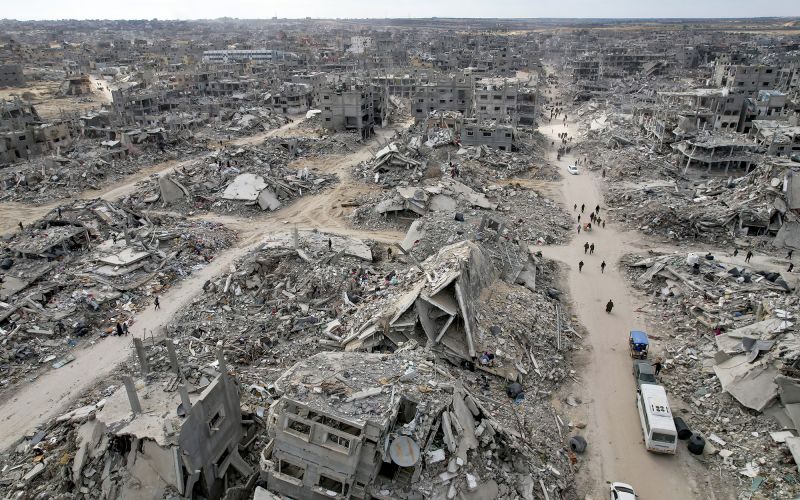
One minute, they were celebrating Gaza’s ceasefire. The next, they were killed
Thirteen-year-old Zakariya Barbakh had spent most of his life shuffling between hospitals across Gaza, the occupied West Bank and Israel.
Born without a lung, he had struggled to breathe. Doctors had predicted he would need a transplant if he were to reach adulthood. But the last 15 months of war in Gaza had made that impossible.
When the ceasefire between Israel and Hamas went into effect on Sunday, Zakariya was ecstatic.
“Mom, now we can go look for my lungs!” his mother recalled him saying.
Less than 24 hours later, Zakariya was shot dead.
“He didn’t die from his disease; he ended up dying at the hands of the occupation. All he wanted was to have lungs to breathe, what did he do to deserve this? What did this child do?” his mother said, unable to hold back tears.
Zakariya is one of at least four Palestinians shot by the Israeli military since the ceasefire went into effect.
The Israeli military has withdrawn to buffer zones along Gaza’s border, but has warned Palestinians against approaching areas where its troops are still stationed. It has published a map of zones that are “very dangerous” to approach.
But where those zones begin and end is not always as clear on the ground.
“How would he know he would face occupation forces? How would he know he was in the wrong area? All he did was try to find something to eat. He got lost along the way. Can you not see the way this child looks? He looks sick and despairing,” his mother said.
The video shows a man trying to drag Zakariya’s lifeless body before he too is shot. The man survived
News that Israel and Hamas had reached a ceasefire deal triggered celebrations across the Strip last Wednesday. But in several areas those celebrations were soon drowned out by the sound of Israeli airstrikes.
In the four days between when the deal was announced and when it went into effect on Sunday morning, Israeli attacks killed at least 142 Palestinians, according to Gaza’s Civil Defense, including dozens of women and children.
Among them were members of 3-year-old As’ad Khalifa’s family.
Less than 24 hours after the ceasefire deal was announced, an Israeli airstrike targeted his home.
As’ad survived, but in an instant, he became an orphan. His parents and sister were killed in the strike.
Dallou knew the family as they had been displaced by the war at the same time. He went searching for them under the rubble with other neighbors. Using basic equipment and their bare hands, they were able to uncover and retrieve the dead bodies of the mother and father but the children remained missing.
Before they gave up, they heard the cries of a child and began frantically throwing aside blocks of cement until they reached the source.
After a grueling 30 minutes, they found a small hand reaching out amid the rubble and gripping the air. They were able to pull the child – As’ad – out, roughed up and covered in dust – but alive. His little sister was found dead next to him.
Dallou and his sister Mawada have since taken him in.
“The IDF took intelligence measures to mitigate harm to uninvolved individuals,” the statement added.
Dallou has children of similar age to As’ad, which has helped to integrate him into their family. But he is concerned about how As’ad will grow up.
“I know from my experience with my little daughter that this child is going through a difficult psychological state. They are petrified from any sound now …They start crying for their mother,” he said.
Mawada said that because she knew As’ad’s mother, she would do everything she can to embrace him.
“We will try, but we will not be able to replace his mother or bring her back.”
